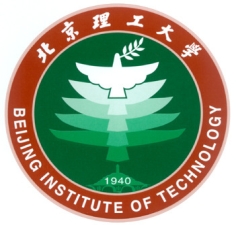Majorana fermion perspective of strongly correlated systems
来源:Tancent Meeting:769 675 841 作者:Miaomiao Jian 发布时间:2022-09-12contact person: Fan Yang
reporter: Jianjian Miao
time: 2022-09-12
place: Tancent Meeting:769 675 841
profile:
Majorana fermions are emergent quasiparticles in condensed matter physics. In topological superconductors, there exist unpaired Majorana zero modes that have the prospect of topological quantum computation.


 best365平台“博约学术论坛”系列报告
best365平台“博约学术论坛”系列报告
第349期
题目:Majorana fermion perspective of strongly correlated systems |
报告人:苗舰舰 研究助理教授 (香港中文大学) 时 间:2022年9月12号(周一)上午10:00-12:00 地 点:腾讯会议:769 675 841 |
摘要: Majorana fermions are emergent quasiparticles in condensed matter physics. In topological superconductors, there exist unpaired Majorana zero modes that have the prospect of topological quantum computation. Moreover, Majorana fermions offer new perspective of strongly correlated systems. In this talk, I’ll first discuss an interacting Majorana fermion model on square lattice. The ground state is obtained exactly and exhibits the nontrivial coexistence of spontaneous symmetry breaking and topological order. The Z2 symmetry breaking leads to the intertwined spin and pairing orders. The topological order is reflected in the Z2 quantum spin liquid state. Then I’ll study the Haldane-BCS-Hubbard model on honeycomb lattice. The exact solution is obtained along the symmetric lines utilizing the Majorana fermion representation. At weak interaction, the ground state of the Haldane-BCS-Hubbard model is a topological superconducting state with two chiral Majorana edge states. The strong interaction drives the system across a topological quantum phase transition to a topologically trivial superconductor. Such Majorana fermion perspective can be adopted to explore other strongly correlated systems.
|
简历: 苗舰舰,香港中文大学研究助理教授。2012年本科毕业于浙江大学, 2017年在浙江大学获得博士学位。之后在中国科学院大学卡弗里理论科学研究所从事博士后研究。目前在香港中文大学担任研究助理教授职位。从事强关联电子系统理论研究,在包括Phys. Rev. Lett.在内的国际一流期刊发表论文多篇。 |
联系方式:yangfan_blg@bit.edu.cn 邀请人:杨帆 教授 网 址:http:/ 承办单位:物理公司、先进光电量子结构设计与测量教育部重点实验室 |




